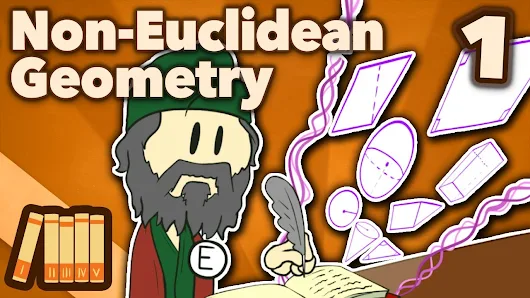https://www.youtube.com/watch?v=nkvVR-sKJT
https://www.youtube.com/watch?v=vUWKMo5scKY
https://www.youtube.com/watch?v=H74AayZkpXg
https://www.youtube.com/watch?v=i5goUkT1irw
Michelson-Morley experiment disproved the aether's existence
https://www.youtube.com/watch?v=RJHi7xJV7QY
Arabic Science
https://www.youtube.com/playlist?list=PLtakTnKQQMCwysRncC2zcBqkaPRK6uE1x
The Weird Truth About Arabic Numerals
https://www.youtube.com/watch?v=Ar7CNsJUm58
MathHistory: A course in the History of Mathematics - njwildberger
https://www.youtube.com/playlist?list=PL55C7C83781CF4316
Adelard of Bath When Adelard's influence on the study of philosophy is considered, it is clear that his ideas most notably manifested in the later works of Robert Grosseteste and Roger Bacon. While his work in natural philosophy is probably overshadowed by Aristotle, it still helped lay the foundations for much of the progress that was made in the later centuries. His work surrounding Euclid’s Elements, for example, was of great help in providing training that would help future scholars understand the relationships between demonstrative and geometrical proofs. While his original writings demonstrate that he had a sincere passion for the seven liberal arts (grammar, rhetoric, logic, mathematics, geometry, music, and astronomy), his work in Quaestiones naturales illustrated a more encompassing dedication to subjects such as physics, the natural sciences, and possibly even metaphysics. His influence is also evident in De philosophia mundi by William of Conches, Hugh of Saint Victor, and Isaac of Stella's Letters to Alcher on the Soul. He introduced algebra to the Latin world and his commentaries in Version III of Euclid's Elements were extremely influential in the 13th century.[15] Adelard also displays original thought of a scientific bent, raising the question of the shape of the Earth (he believed it round) and the question of how it remains stationary in space, and also the interesting question of how far a rock would fall if a hole were drilled through the Earth and a rock dropped through it, see center of gravity. Campanus of Novara probably had access to Adelard's translation of Elements, and it is Campanus' edition that was first published in Venice in 1482 after the invention of the printing press. It became the chief textbook of the mathematical schools of Western Europe until the 16th century.
https://en.wikipedia.org/wiki/Adelard_of_Bath
https://en.wikipedia.org/wiki/Latin_translations_of_the_12th_century
https://en.wikipedia.org/wiki/Islamic_world_contributions_to_Medieval_Europe

